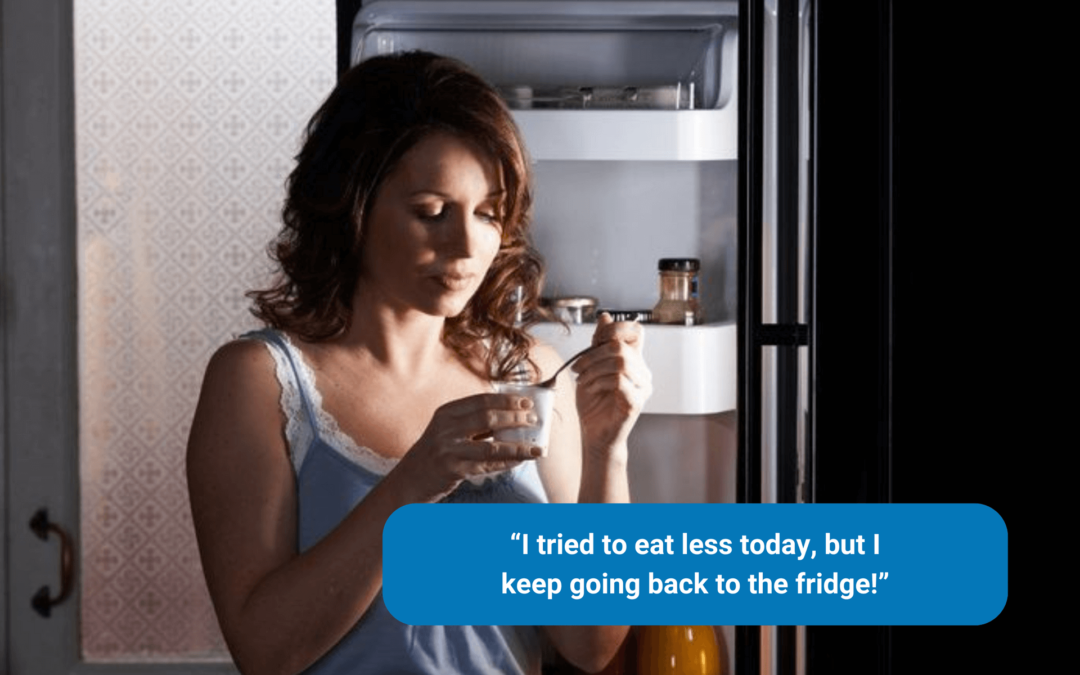Eating in a way that keeps you satisfied while managing your calorie intake is both an art and a science. It’s not just about the number of calories or the size of portions; the quality of your food plays a pivotal role in how full you feel. Let’s delve into why some foods keep you satiated longer and others leave you reaching for more.
Why Do I Feel Hungry Shortly After Eating?
Understanding why you might feel hungry shortly after eating involves exploring several factors. One significant factor is deprivation dieting. Many popular diets recommend very low calorie intakes, which can lead to initial weight loss but often leave you feeling depleted, tired, and perpetually hungry. This occurs because your body isn’t receiving the essential nutrients it needs to function optimally, even though you might be consuming fewer calories.
Another consideration is your lifestyle. If you engage in high-intensity physical activities or have a demanding job that burns a lot of calories, your caloric needs will be higher. For instance, athletes like Michael Phelps, during their training, consumed between 8,000 to 10,000 calories daily to meet their energy requirements. If you lead a similarly active lifestyle, a standard caloric intake might not suffice to keep you full and energized.
The quality of your food also impacts your hunger levels. Heavily processed foods may provide calories but often lack essential nutrients, leaving you unsatisfied. For example, after eating a fast-food meal, you might still feel hungry a few hours later due to the low nutrient density of the food consumed. Processed snacks like chips or candy bars are notorious for causing quick spikes and drops in blood sugar, which can lead to more frequent feelings of hunger.
Eating too quickly can also contribute to persistent hunger. When you eat rapidly, your brain doesn’t receive fullness signals in time, as it takes about 20 minutes for these signals to register. Eating mindfully and savoring your food can help your brain catch up with your stomach, allowing you to feel fuller for longer.
Sleep deprivation is another critical factor. Lack of adequate sleep disrupts the balance of hunger-regulating hormones like ghrelin and leptin, leading to increased hunger and cravings. When you’re sleep-deprived, your body’s need for more energy can cause you to consume more calories, which is why consistent sleep is important for managing hunger and weight.
Lastly, sometimes thirst is mistaken for hunger. Dehydration can mimic hunger pangs, so if you’ve eaten a balanced meal but still feel hungry, try drinking 8 to 16 ounces of water. Hydrating can often resolve these feelings of hunger. Waiting about 20 minutes after drinking can help determine if what you’re experiencing is truly hunger or just dehydration.
What Are Signs That I’m Thirsty Not Hungry?

Recognizing the signs of thirst versus hunger can help manage unnecessary snacking. Common symptoms of dehydration include headaches, muscle cramps, joint pain, low energy, brain fog, dizziness, and dry skin or mouth. If you’re experiencing these symptoms and feel “hungry,” it might be your body signaling dehydration. Additionally, if you’re craving salty foods, it could be another indication of thirst, as salt can increase your thirst levels.
To stay hydrated, aim to drink at least 64 ounces of fluids daily, which equates to about half your body weight in ounces. This amount should be adjusted based on factors such as temperature, physical activity, and specific health needs. Drinking water before engaging in physical activities or when you first feel thirsty can help prevent dehydration and manage hunger effectively.
What Foods Make Me Feel Fuller?

To stay full on fewer calories, focus on incorporating nutrient-dense foods into your diet. Foods that are high in fiber and protein are particularly effective at promoting fullness. Fiber, found in fruits, vegetables, whole grains, and legumes, adds bulk to your meals and slows digestion. This not only helps regulate blood sugar levels but also keeps you feeling satisfied longer. For instance, fiber-rich foods like apples, berries, and beans contribute to a sense of fullness by expanding in your stomach and slowing down the rate at which your food exits the stomach.
Protein also plays a crucial role in satiety. Consuming a variety of protein sources throughout the day helps manage hunger by providing sustained energy and aiding in muscle maintenance. Proteins are broken down more slowly than carbohydrates, which helps regulate hunger and energy levels. Include sources such as lean meats, seafood, eggs, dairy products, and plant-based proteins like nuts and legumes in your diet.
For snacks that keep you satisfied, consider incorporating options that balance both fiber and protein. Greek yogurt, especially when paired with fresh berries, offers a combination of high protein and fiber. Apple slices with nut butter provide a satisfying mix of fiber and healthy fats. Hummus, made from chickpeas, offers both protein and fiber, making it an excellent dip for vegetables like carrots and bell peppers. Cottage cheese combined with pineapple provides a sweet yet nutritious snack, rich in protein and fiber.
If you’re still searching for satisfying snacks, edamame, chia pudding, whole-grain crackers with cheese, roasted chickpeas, and guacamole with veggie chips are all excellent choices. These options provide a balance of protein, fiber, and healthy fats, keeping you fuller between meals and supporting overall health.
How to Lose Weight & Maintain Weight Loss?
Fad diets often promise quick results but fail to offer sustainable solutions. They can leave you feeling hungry and fatigued, making it difficult to maintain long-term weight loss. Instead, focus on creating healthy, lasting habits. At Healthy Self Weight Loss, we offer personalized weight loss programs designed to keep you satisfied while helping you achieve and maintain your goals. Our programs include options like Semaglutide injections and tailored vitamin supplements, ensuring you receive the support you need.
Reach out to learn more about how our scientifically-backed programs can help you manage your appetite and achieve lasting weight loss. By understanding how to balance hunger and hydration and choosing the right foods, you can successfully manage your calorie intake and maintain a healthy lifestyle.

